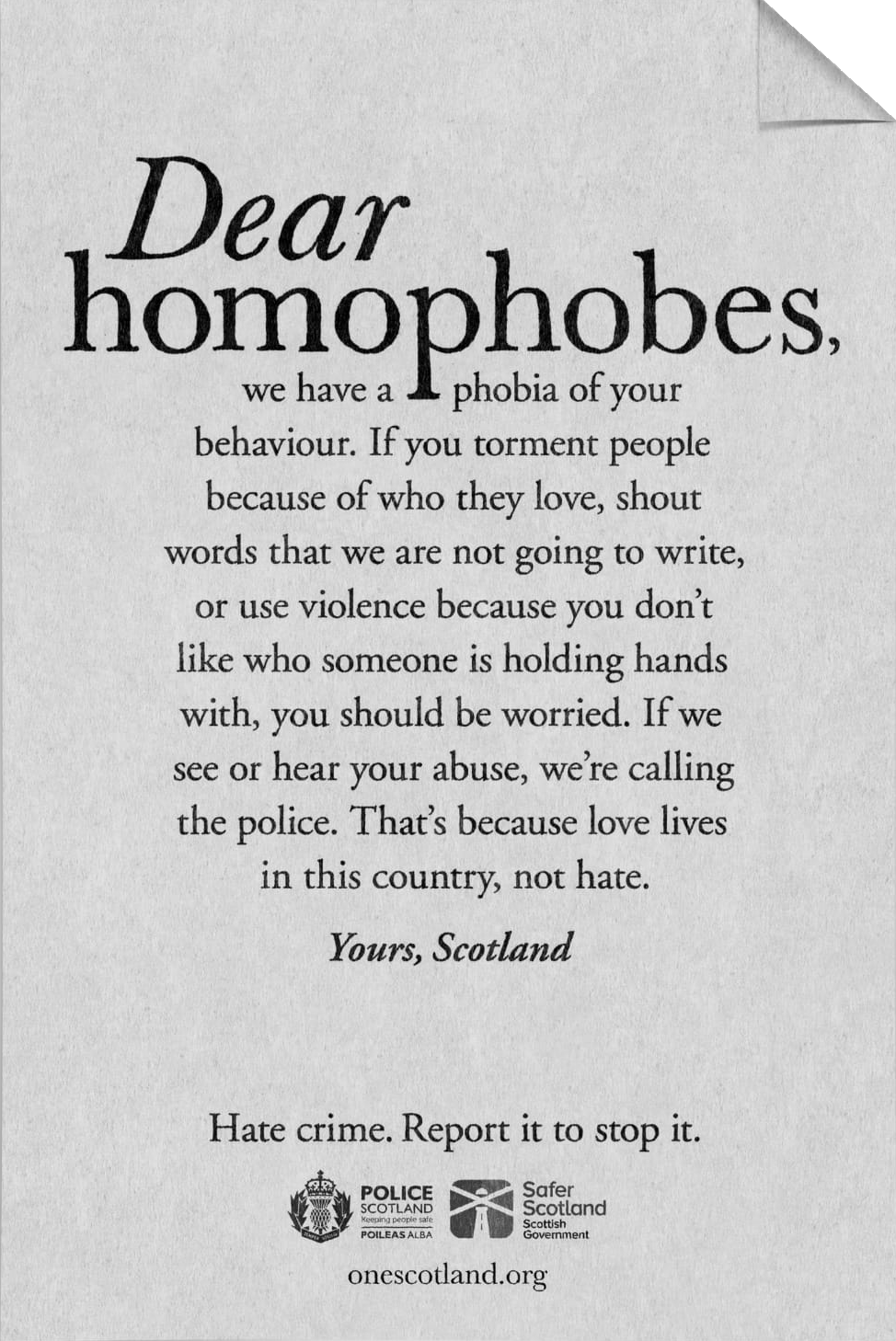A currently running government and police campaign aims to address hate crime, and it’s getting lots of praise in my cosy liberal-progressive echo chamber. (I must add more soft furnishings!) And for good reason; it’s optimistic, inclusive, and has a message of love and tolerance.
There’s one line that rankles in one of the posters, though, and it’s a trope that is often used by GSRM people.
It’s “…because of who they love”. I know, and have been subjected to abuse by, homophobic people, and ‘love’ never enters into it. Their intolerance and fear and revulsion is not because of who we love but because of who we fuck. Picture it: a man stands up in a pub with his partner and declares “I love this man!” In a progressive city, he’s met either with polite indifference, or support. In a conservative city, awkwardness or hostility.
“I fuck this man!”? Very different. Even if it’s just because they know they risk vilification from progressives, conservatives and bigots tend not to fight about ‘love’, but they’ll fight about sex.
And I fear that GSRM people are being disingenuous, being all wide-eyed innocent, when we claim we’re discriminated against because of who we love. That may indeed be why we are, or it may at least be what it feels like for us, but I don’t think that’s why people feel licence to abuse us.
Love is noble and pure and good. Or at least, it’s complicated and disorientating and hard to define, which might actually just be what ‘noble and pure and good’ looks like from behind.
Sex is simpler. It’s not literally more visceral unless you’re into a kink I’m pleased to say up until this point it hadn’t occurred to me to imagine, but it’s certainly more animal. (That one we know about, by the way.) Our buttons are more easily pushed when it comes to sex, although most people counsel a little foreplay first.
GSRM people shouldn’t just be demanding respect from the cishet majority because we think they can just about stand non-heterosexual love being shoved down their throats.
Look, I’m getting silly, but there’s something here that seems important to me. Too often, society of all genders and sexual preferences use ‘love’ as a euphemism for ‘love and fucking’ because we think we can swing ‘love’ while hoping everyone else forget genitals will likely be involved. And that’s generally neither here nor there, but it bugs me a bit when GSRM people do it then feign outrage when cishet people crack their cunning code. How dare they? How dare they judge me for who I love?
I’m not saying they should be able to judge you for who you fuck either, to be clear, but this coyness, even deliberate dissembling about sex does nobody any favours.
If I’m going to be judged, let it be for the whole me, not some sanitised, saintly, de-sexed subset of me.
